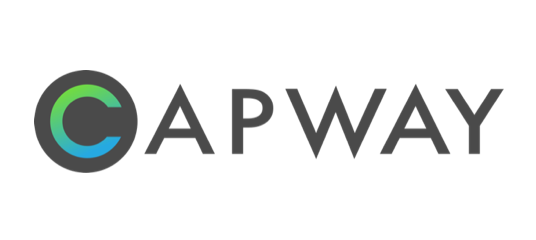Lack of access to banking services is not only an issue for developing countries. In the latest of its annual reports on the economic well-being of U.S. households, the Federal Reserve (Fed) found that 5% of Americans are “unbanked” because they don’t have a bank checking or savings account.1 Another 13% are underbanked because, while they may have a bank account, they have to rely on alternative financial services such as money order or check-cashing stores, payday loans, pawn shop loans, and auto title loans. Only 81% of Americans have access to the full range of services that banks offer and therefore do not need to rely on these alternatives.
As Sheena Allen, the CEO of the mobile bank CapWay, notes, it is wrong to assume that this lack of access to banking services is only an issue for the poor. The Fed’s report showed that 13% of people with annual incomes in the $50,000 to $100,000 range are unbanked or underbanked, and 6% of people with annual incomes over $100,000 are.
A number of factors have contributed to this problem, Sheena says. There is considerable mistrust of financial institutions. Some people who aren’t living paycheck to paycheck and can build up a cash reserve still don’t believe they can safely deposit their money in banks. The phenomenon of stuffing money into mattresses is real, she emphasizes.
People who live in major cities and their suburbs, where there are multiple bank branches, would also be surprised to discover some of the nation’s major banks are not in all 50 states. In many rural and lower-income communities, there simply isn’t a local bank. These “banking deserts” are present across the country. Historically, many communities have also been the victim of redlining, as institutions chose not to put branches in communities where most of the residents are people of color. The rise of digital banking has only exacerbated the problem, as many banks are closing branches. The alternative services – the check-cashing stores and payday and title loan providers — fill the banking void in these communities.
Sheena also cautions against the assumption that the people who rely on these services don’t know how to manage their money or budget well. People are often working two or three jobs to meet their living needs, she says, and they know how to stretch their money because they must in order to get by on their limited incomes. Resorting to payday or title loans often is an act of desperation because people are concerned about meeting their rent or keeping the electricity on.
In Sheena’s view, three things must happen for families to be able to escape the cycle of paycheck-to-paycheck living and build generational wealth. The first step is to get money. The second and third steps are to keep it and grow it. The problem for many people and communities is that they don’t have access to the information and resources that enable them to do steps two and three.
All of these issues –the absence of banks, the mistrust of them, and the lack of awareness of financial issues – makes people susceptible to predatory lending practices that impose exorbitant interest rates and late payment penalties on loans.
Sheena experienced all these issues firsthand, growing up in Terry, Mississippi, a small town outside of Jackson. She remembers there was only one bank, but many check-cashing stores, pawn brokers, and businesses offering car title loans. Her grandmother was one of the “mattress stuffers,” as she says, because she didn’t trust banks.
New needs in a cashless economy
Sheena knew that younger generations could not live as her grandmother did. The economy is increasingly cashless, and if you want to do something as simple as stream a movie through Netflix or listen to music via Spotify, you must pay for the services digitally.
That realization gave Sheena the idea for CapWay, which provides people with access to digital options for financial transactions. Her goals, though, extend far beyond a digital bank card. Education is a key component of CapWay’s mission. CapWay helps people track their expenses and establish spending plans, while also providing insights and tips on financial topics ranging from leasing or buying a car to investing in mutual funds. Sheena wants to empower people and make them less susceptible to the predatory economy.
When Sheena first had her idea for CapWay in 2016, there was not significant competition. Mobile payment systems targeting the unbanked had taken off in other regions of the world, as M-Pesa did in Africa. In the U.S., though, the few companies targeting the unbanked and underbanked didn’t have successful strategies. In the years since, more “neobanks” (purely digital banks with no brick-and-mortar offices) have emerged, but their range of services often does not extend far beyond digital bank cards.
Sheena is looking to build an ecosystem that people can rely on for all their financial needs. Achieving that goal may translate into doing more than digital banking. CapWay is considering using converted shipping containers to establish, at least for a few years, physical outreach centers in the banking deserts to provide people with the one-on-one personal interaction they sometimes want when addressing personal finance matters.
She and her team are also looking to provide assistance with those few remaining bastions of cash transactions – like tips paid to restaurant servers or valets at hotels and parking facilities. Neither the customer nor the service provider would need to already have a CapWay Money Account, but the customer could use the service to pay the tip, and the server could use it to get immediate access to the money.
An affinity for technology
CapWay is Sheena’s second startup. While in college, she established a company that offered a variety of media apps. Before enrolling in college, she thought she would pursue a career in the arts. Working on the networking and photography apps that her first tech startup offered made her realize how much she loved technology. CapWay provided her with a way to combine her affinity for tech with her personal goal of helping people and communities that were underserved and overlooked by banks and financial institutions.
She bootstrapped her first startup, Sheena Allen Apps, and briefly considered not looking for outside financing for CapWay. She made a quick discovery, though. As she says, “You can’t bootstrap a bank.” The connections she’d made through the tech industry with her first firm helped her find the right people to invest in CapWay.
Emles Venture Partners was one of her early investors. As Emanuel (“Manny”) Zareh, a partner at Emles notes, “We were so impressed with Sheena’s resiliency and her ability to use her life experiences to help others – people who, through no fault of their own, have been at the bottom of the financial pyramid in this country. The CapWay team is finding innovative ways to change that dynamic and help these overlooked communities get access to financial tools and opportunities that otherwise wouldn’t be available to them.”
Sheena says the partnership with Emles has been valuable to her because it has been focused on collaboration. As a founder, she knows there is a temptation for some investors to constantly check up on you because they want to know what’s happening with your revenue, your head count and overall progress. In her conversations with Manny, she says he is more interested in knowing what Emles can do to help Sheena and her team achieve the ambitious goals they have set for themselves.
There is no limit to the scope of Sheena’s vision. She knows more people need access to a digital bank card, but she realizes people in these communities need much more than that to effectively manage their financial lives. Early reactions among the test groups that CapWay has rolled out its services to have been extremely positive. If the firm continues on that successful path, Sheena’s ability to dream big will have many beneficiaries.
References:
- Source: Report on the Economic Well-Being of U.S. Households in 2020 – May 2021, U.S. Federal Reserve
CapWay is a mobile bank providing financial opportunities for everyone through access to debit cards, education, and other financial services.
Get in touch with CapWay
- Visit https://capway.com/

